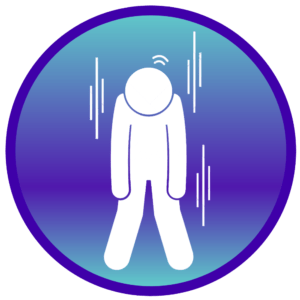Magnificent Magnesium for Maximum Relaxation and Calmness
Magnesium, the fourth most abundant mineral in our body, is naturally present in many foods such as whole grains, leafy vegetables, beans, seeds and nuts. And yet, magnesium deficiency seems to be relatively common. This is mainly due to our eating habits, which requires additional health supplements to fill the gaps.
Why do you think Magnesium matters?
Magnesium is a natural relaxing mineral that's involved in almost all of our bodily functions. It plays a very important role in hundreds of biochemical reactions such as muscle relaxing, relieving migraines, fighting against anxiety and stress levels, sleep quality improvement etc.
Now you know Magnesium is a key mineral for our bodies, but do you know which Magnesium to choose from? Remember, not all health supplements are the same. Learn how our Magelax can make a difference for you more below.
Why Magnesium Glycinate?
There are different types of magnesium that people can get from dietary supplements. Each type of magnesium has different properties as they can vary in terms of their medical uses, bioavailability, or potential side effect. Let's have a look below on the following types of magnesium that are popular in market.

Magnesium glycinate, the key ingredient in Magelax, is a highly beneficial form of magnesium that stands out among other supplements. This form of magnesium is easily absorbed by the body and well-tolerated.
By combining magnesium with the amino acid glycine, Magelax provides additional benefits for overall health compared to other magnesium forms.
Key Features of Magnesium Glycinate
1. Muscle Relaxation
Muscle cramps are involuntary, localized, and usually painful skeletal muscle contractions, which commonly affects calf muscles.
Magnesium deficiency is one of the causes for cramping. If your body is magnesium-deficient, this can cause cramps, spasms, tightness and tension in your muscles and joints.
How Does Magnesium Glycinate Help in Muscle Relaxation




2. Migraine Headaches
Studies have found that people who have migraines headaches tend to have lower levels of magnesium than people who don’t get headaches. Magnesium relieves migraine by blocking the signals in the brain that lead to migraines and pain. It prevent brain nerves from overstimulation and contraction of the blood vessels in the brain.
3. Mental Relaxation
Magnesium’s beneficial effects on mood and stress are so well-known that the mineral has nicknames like “the original chill pill” and “nature’s valium.”
Magnesium plays two important roles in the brain, which may contribute to these symptoms. First, it blocks the activity of more stimulating neurotransmitters and binds to calming receptors, resulting in a more peaceful, resting state. Then, it helps to regulate the release of stress hormones like cortisol, acting like the brake on your body’s nervous system.
Signs you might have Magnesium deficiency
Many people have low magnesium levels without realizing it, as symptoms of inadequate magnesium may not always be obvious.
It’s important to be aware of the early signs of magnesium deficiency:








-
Sale!

Eldon DX Magelax
RM98.00From: RM86.00 Select options This product has multiple variants. The options may be chosen on the product page

